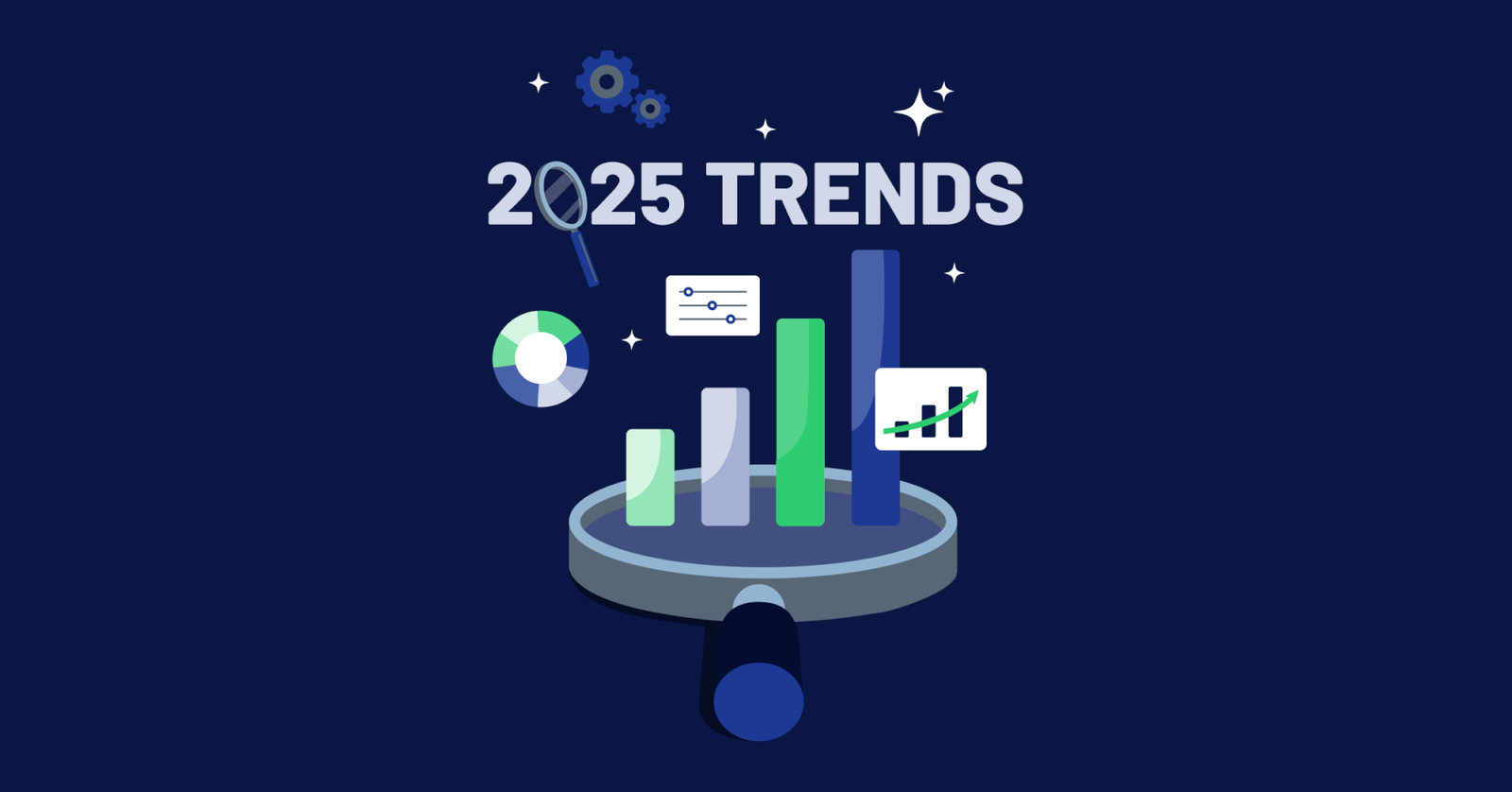SEO Trends 2025, Search Engine Optimization (SEO) is an ever-evolving landscape, constantly reshaped by algorithm updates, shifting user behaviors, and emerging technologies. As we move into 2025, businesses and marketers must stay ahead of the curve to maintain visibility and relevance in increasingly competitive search results. From AI-powered search experiences to zero-click results and evolving user intent, the SEO playbook is undergoing significant changes.
In this article, we break down the top SEO trends 2025 and offer actionable insights on how to leverage them for sustainable growth and improved online visibility.
Search Generative Experience (SGE) is Reshaping the SERP
Google’s Search Generative Experience (SGE) is fundamentally altering how users interact with search results. This AI-driven experience generates conversational, summarized responses directly in the search engine results page (SERP), often reducing the need to click through to a website.
Why it matters: Websites that traditionally ranked high for featured snippets or answer box queries may see a decline in traffic if users find answers directly on Google.
How to leverage:
- Create deep, authoritative content that goes beyond surface-level answers.
- Use structured data and schema markup to increase the chances of being referenced in SGE.
- Focus on long-tail keywords and questions where users seek nuanced information.
The Rise of Voice and Conversational Search
SEO Trends 2025, With the widespread use of smart speakers, mobile assistants, and now AI-integrated devices, voice search is becoming a primary method of searching online. Voice queries tend to be more conversational and longer than typed searches.
Why it matters: Traditional keyword strategies may fall short as search becomes more dialogue-based.
How to leverage:
- Optimize content for natural language queries.
- Include FAQs that reflect how people actually speak.
- Use contextual keywords and semantic SEO to enhance content discoverability.
EEAT and Content Authenticity Take Center Stage
Google’s E-E-A-T framework—Experience, Expertise, Authoritativeness, and Trustworthiness—continues to be a cornerstone of content ranking, especially in YMYL (Your Money, Your Life) niches such as health, finance, and legal.
Why it matters: In an age of AI-generated content, authentic human perspectives are more valuable than ever.
How to leverage:
- Showcase author bios with credentials, especially in sensitive niches.
- Include real-life experiences, case studies, and user-generated content.
- Secure backlinks from reputable sources to signal authority.
User Experience (UX) and Core Web Vitals Still Matter
While content remains king, the technical performance of your site is a critical ranking factor. Google’s Core Web Vitals measure elements like loading speed, interactivity, and visual stability—metrics that influence both rankings and user satisfaction.
Why it matters: A poor user experience can lead to higher bounce rates and lower rankings.
How to leverage:
- Optimize images and scripts to ensure fast load times.
- Use responsive design to improve mobile usability.
- Regularly audit your website for technical SEO issues.
Visual and Video SEO are Gaining Momentum
Search engines are increasingly prioritizing visual content. Google Lens, image recognition, and video carousels are just a few examples of how multimedia is becoming more influential in search.
Why it matters: Visual content is often more engaging and can rank in dedicated search sections.
How to leverage:
- Include descriptive alt text and file names for images.
- Optimize YouTube video descriptions, titles, and transcripts for search.
- Embed relevant videos within blog posts to enhance content richness.
Zero-Click Searches Are on the Rise
SEO Trends 2025, A growing percentage of searches result in no clicks at all, thanks to featured snippets, knowledge panels, and now SGE. While this may seem discouraging, it also presents an opportunity to build brand awareness directly in the SERPs.
Why it matters: Your site might not receive traffic even if it ranks #1.
How to leverage:
- Create concise, well-structured answers that can be pulled into snippets.
- Ensure your brand and domain name are visible in SERP features.
- Focus on branding and visual identity to make a memorable impression.
Semantic Search and AI-Powered Algorithms
Google’s algorithms are now heavily reliant on natural language processing and machine learning to understand search intent. Tools like BERT and MUM help search engines go beyond keywords to grasp the full meaning of queries.
Why it matters: Keyword stuffing no longer works—context and meaning are more important.
How to leverage:
- Use topic clusters and internal linking to build contextual authority.
- Create pillar pages that cover a broad topic in depth, supporting them with related content.
- Leverage tools like Google’s Natural Language API to analyze how your content is understood by machines.
Localization and Hyper-Personalization
Local SEO is evolving rapidly with the growth of hyper-local targeting and personalized content based on user behavior, location, and preferences. This is particularly important for small businesses and service providers.
Why it matters: Personalization can significantly increase engagement and conversion rates.
How to leverage:
- Ensure your Google Business Profile is complete and accurate.
- Use location-specific keywords and landing pages.
- Incorporate localized content like reviews, events, and community news.
AI Tools for SEO Strategy
AI-powered tools like Surfer SEO, Clearscope, and ChatGPT are transforming the way content is created and optimized. They can assist with keyword research, content outlines, and competitive analysis.
Why it matters: Efficiency and precision are becoming competitive advantages.
How to leverage:
- Use AI to streamline repetitive SEO tasks, not replace human insight.
- Focus on quality control and originality to stand out.
- Blend AI assistance with editorial expertise for best results.
Sustainable SEO Over Growth Hacks
SEO Trends 2025, Short-term SEO tricks are becoming less effective as search engines grow more sophisticated. The focus is shifting toward sustainable, long-term strategies built on trust, quality, and user value.
Why it matters: Quick wins can hurt your credibility and rankings in the long run.
How to leverage:
- Build content ecosystems around long-tail keywords and evergreen topics.
- Foster authentic backlinks through partnerships, PR, and guest posts.
- Invest in audience engagement and community-building to earn loyalty.
Read More: Top 10 Free SEO Tools for Beginners to Improve Website Rankings
Conclusion
SEO Trends 2025, The SEO landscape in 2025 is more dynamic than ever. With the integration of AI into search, the importance of E-E-A-T, and the evolving nature of user interactions, marketers must shift from keyword-focused tactics to holistic, user-centered strategies.
Staying ahead in SEO now means thinking like a strategist, acting like a technician, and communicating like a storyteller. It’s not just about pleasing algorithms—it’s about providing real value to real people.
For a deeper understanding of how Google evaluates content, refer to their Search Quality Evaluator Guidelines—a resource every content creator should bookmark in 2025.





